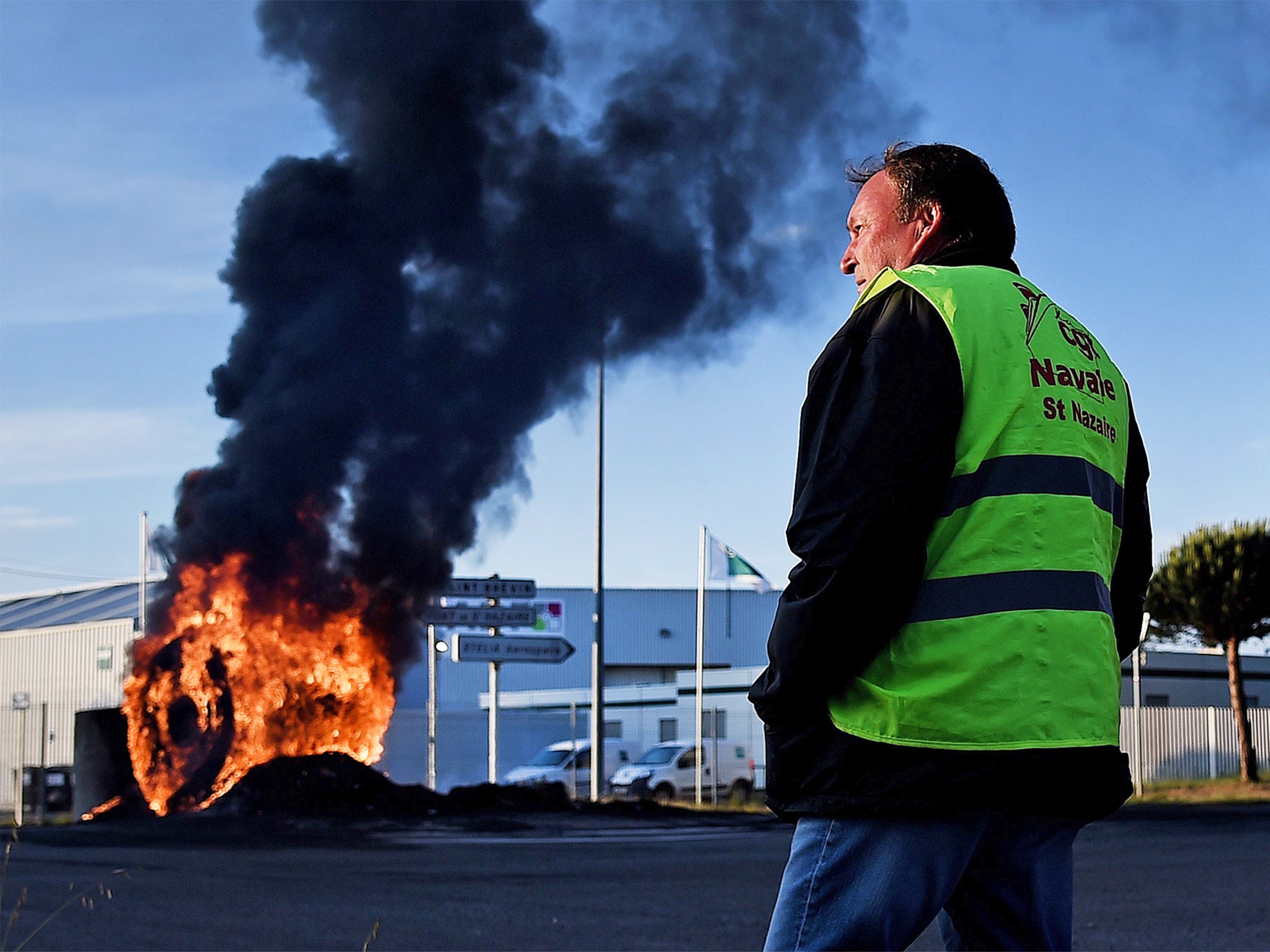François Hollande’s labour reforms are no industrial revolution, but they put the French economy to the test
As France battles to move into the 21st century, one in four filling stations is now out of fuel

May is a dangerous month in France. Ever since the student-worker uprising in May 1968, governments have been careful to avoid confrontations with unions and young people in late spring.
President François Hollande has had the courage, or hubris, to ignore the wisdom of the ages. He and his government find themselves in an explosive confrontation with the country’s largest trades union federation, the CGT.
The immediate argument is about a limited and largely sensible reform of France’s employment laws. The fundamental issue is whether France is prepared to loosen its self-created economic shackles and move more freely – but fairly – into the 21st century.
As the Euro 2016 football showpiece approaches, and France seeks to display its many wonderful qualities to the world, the country faces social and economic chaos. Six out eight oil refineries are wholly or largely blocked. One in four filling stations is out of fuel. A one-day strike has been called in power stations on Thursday which could cause black-outs in some areas. An indefinite rail strike and a three days air traffic controllers’ strike have been called by the CGT next week.
With two weeks to go before the opening game of Euro 2016, there is no obvious exit from the crisis.
The CGT – marginally the largest of eight different “TUC’s” in France – says that it will only end its strikes and blockages if the government abandons the new employment law.
The government, backed by the second largest trade union federation, the CFDT, says that the reforms are in the best interest of workers, the unemployed and the faintly recovering French economy. There is no question, they say, of the new law being withdrawn.
The confrontation crystallises the hatred between two broad blocs of the French left: the “reforming” social democratic left of Mr Hollande and the splintered, mutually detesting tribes of the traditional, hard or anti-capitalist Left.
As the street protests of recent months start to lose steam, the CGT under its new hard-line leader Philippe Martinez, has attempted to seize the leadership of the anti-Hollande, anti-reform, anti-boss and anti-change movement.
The union federation’s motives are partly selfish. The CGT has been weakened by internal scandals and the migration of support to more moderate and more militant union federations. By seeking confrontation with the government, France’s oldest union federation hopes to prove that it has a future by insisting that France must cling to the past.
The rail, power and air control strikes demanded by the CGT may yet prove ineffective. Only two other union federations are providing on-off support. The CGT is, however, very strong in the transport and oil sectors. Its strikes and blockades at refineries and oil depots are likely to persist and could lead to even more violent clashes with the riot police.
The Hollande labour reforms are mocked as too feeble by a centre-right which has never attempted anything so daring. They are opposed by 70 per cent of the French electorate which, as usual, demands change but detests all changes.
The reforms make hiring and firing slightly easier; allow some local worker-boss deals; and give several new rights to workers. They are scarcely revolutionary. The CGT has, paradoxically, made them into a vital test of France’s ability to adapt to reality, abandon destructive myths and move with the times.



Join our commenting forum
Join thought-provoking conversations, follow other Independent readers and see their replies